New ambulances rolled out for obese patients
- Published
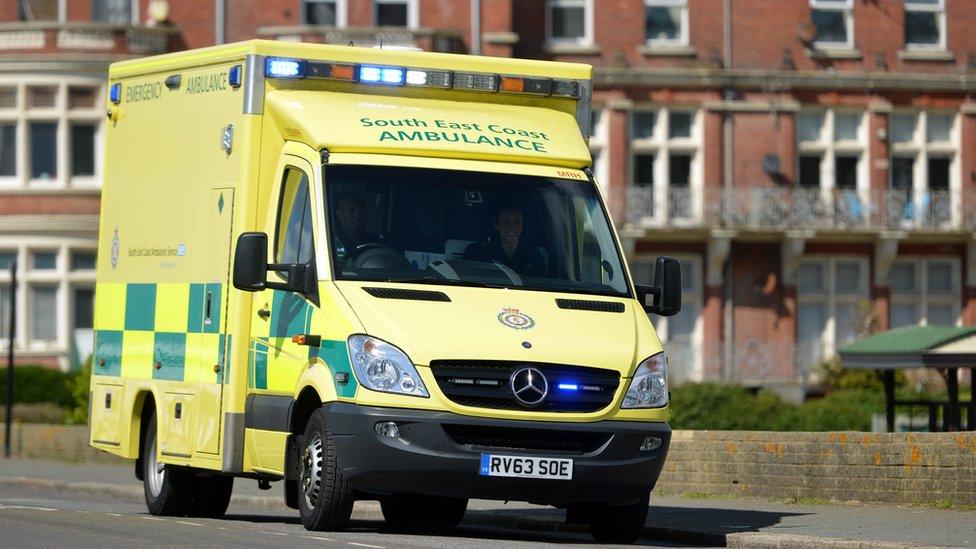
Ambulances across the country have been modified
Ambulance services across England have spent hundreds of thousands of pounds to ensure vehicles can cope with a growing number of obese patients.
Bariatric ambulances are specially-designed and equipped in response to a 10-fold spike in hospital visits linked to obesity in the past decade.
The number of admissions has increased from 52,000 in 2006 to 520,000 in 2016.
Figures show the north west had the highest number of obesity-related admissions in 2016, with 78,000.
The North West Ambulance Service has eight bariatric vehicles, used 40,000 times in four years, and has spent £184,000 on specialist equipment since 2015.
The expenditure was revealed to BBC South East in a Freedom of Information request.
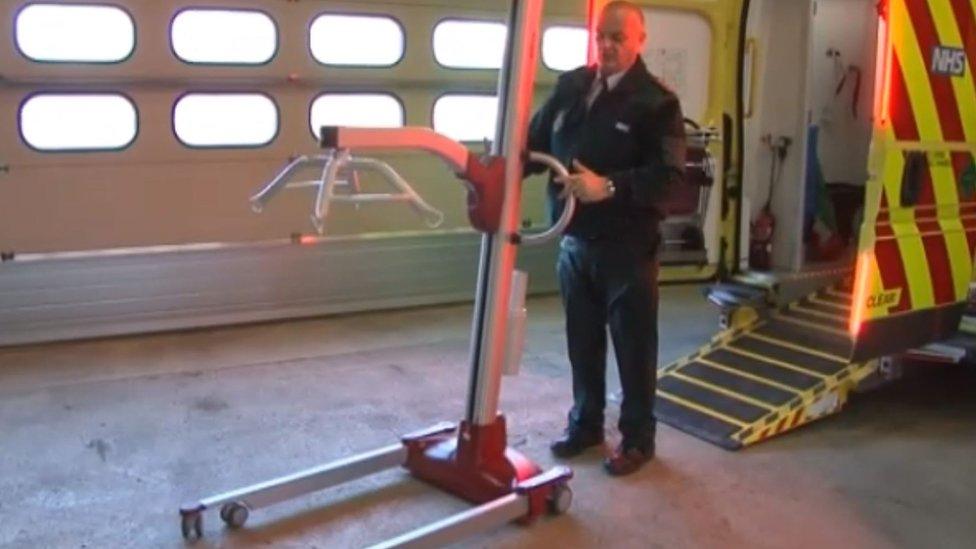
Bariatric ambulances have heavy-duty hoists to manoeuvre patients
Richard Webber, from the College of Paramedics, said investment was crucial across the country for both patients and staff.
He added: "The retirement age is now 67 for paramedics and ambulance service staff.
"That's pretty hard, to be working carrying patients up and down stairs at that age, and patients are getting heavier."

How do ambulance services compare?
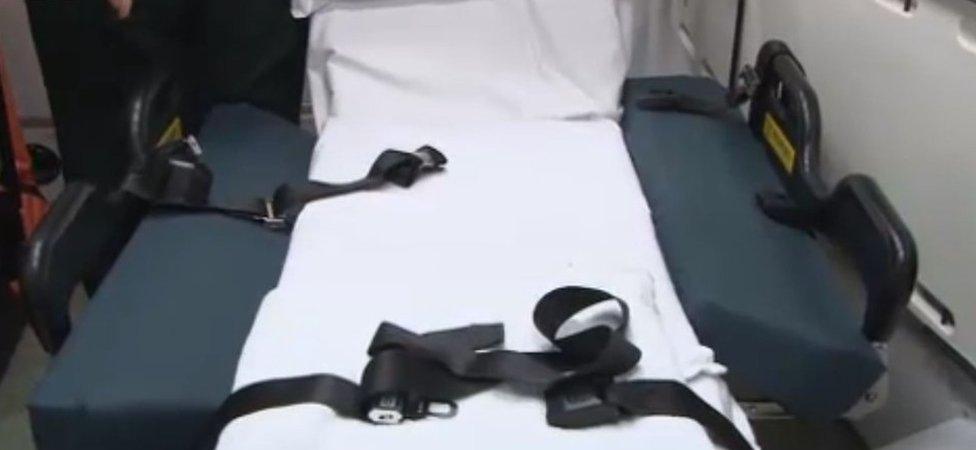
The bariatric stretcher trolleys are wider and stronger than their predecessors
London: Three bariatric vehicles and stretchers which can take patients up to 70 stone (444.5kg). For emergencies, it uses a third party provider.
East Midlands: 225 bariatric capable vehicles for patients up to 50 stone (317.5kg). Six have hoists and lifts.
East: Eight vehicles, with 16 bariatric stretchers, at a cost of £432,000 over three years.
South Central: Has 10 bariatric vehicles arriving this year.
South West: All ambulances have bariatric capability, including one 'Megasus trolley' for patients up to 60 stone (381kg).
West Midlands: All 420 A&E ambulances are bariatric capable, but there are eight specialist vehicles and seven on the way, costing £114,000.
Yorkshire: All ambulances are bariatric capable and the service has 109 bariatric stretchers.

South East Coast Ambulance (Secamb) has spent £562,000 on three ambulances reinforced to take heavy loads since 2010.
They have been used 1,700 times in five years, while other vehicles have been fitted with lifts and large stretchers at a cost of £36,000.
'Last breaths'
Former Secamb ambulance technician Rob Shaw said he had to deal with patients weighing more than 30 stone (190.5kg).
He said: "When someone is in front of you, taking their last breaths, you've got to do something.
"There's no time for warm up exercises, you're putting your body under a lot of stress."

Living with obesity

Gavin Plumb, from Essex, weighs 31 stone (196.8kg) and said he can "barely walk around his flat".
For the past two years, the only time he has left home is to attend hospital appointments with the support of the ambulance service providing specialist stair-lift equipment.
He said: "This life is so frustrating. I'm independent and I hate asking for help and being a burden.
"I've struggled with my weight all my life and was bullied from a young age.
"I used to play football and stayed active working long hours, but it has been a gradual decline and the past couple of years I've been constantly putting on weight.
"I've tried dieting, but the weight always goes back on again."
The father-of-two, from Waltham Abbey, has had a number of jobs, with his last one in McDonald's.
He added: "I'm on the waiting list for a gastric sleeve. As soon as I lose some weight I want to get straight back to work."

NHS obesity statistics, external suggest nearly 60% of women and 70% of men are overweight.
A third of children aged two to 15 are also overweight or obese, prompting a government action plan, external to tackle the issue.
The Department of Health said it spends more each year on the treatment of obesity related ill-health - a total of £5.1 billion in 2014/15 - than the government does on "the police, fire service and judicial system combined".
Tam Fry, of the National Obesity Forum, said: "For years governments have not taken enough interest in what's happening with the population's weight, they haven't prepared for it.
"You can't expect a very overweight person, who is very poor even, to pay for that kind of service.
"That's the sort of service the NHS was set up to cope with."
- Published19 September 2016
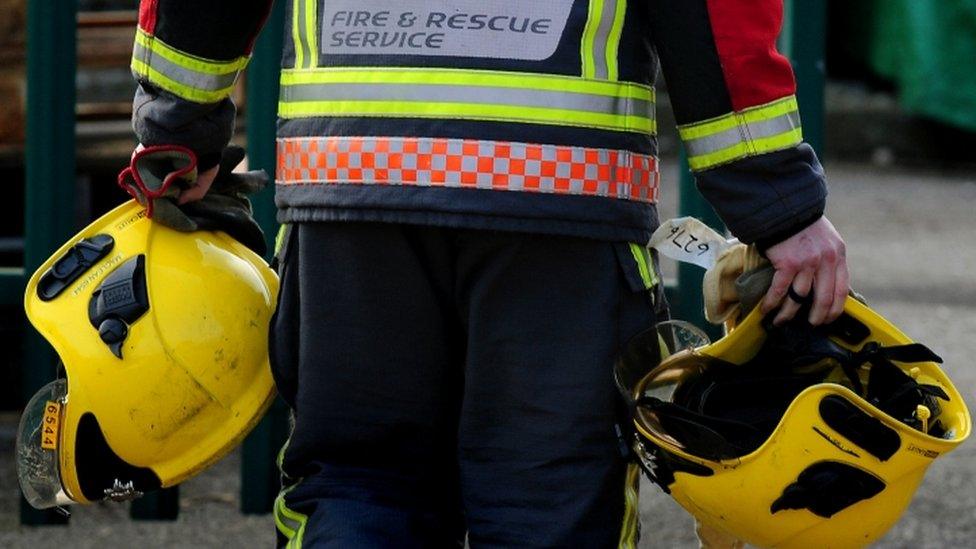
- Published29 October 2014
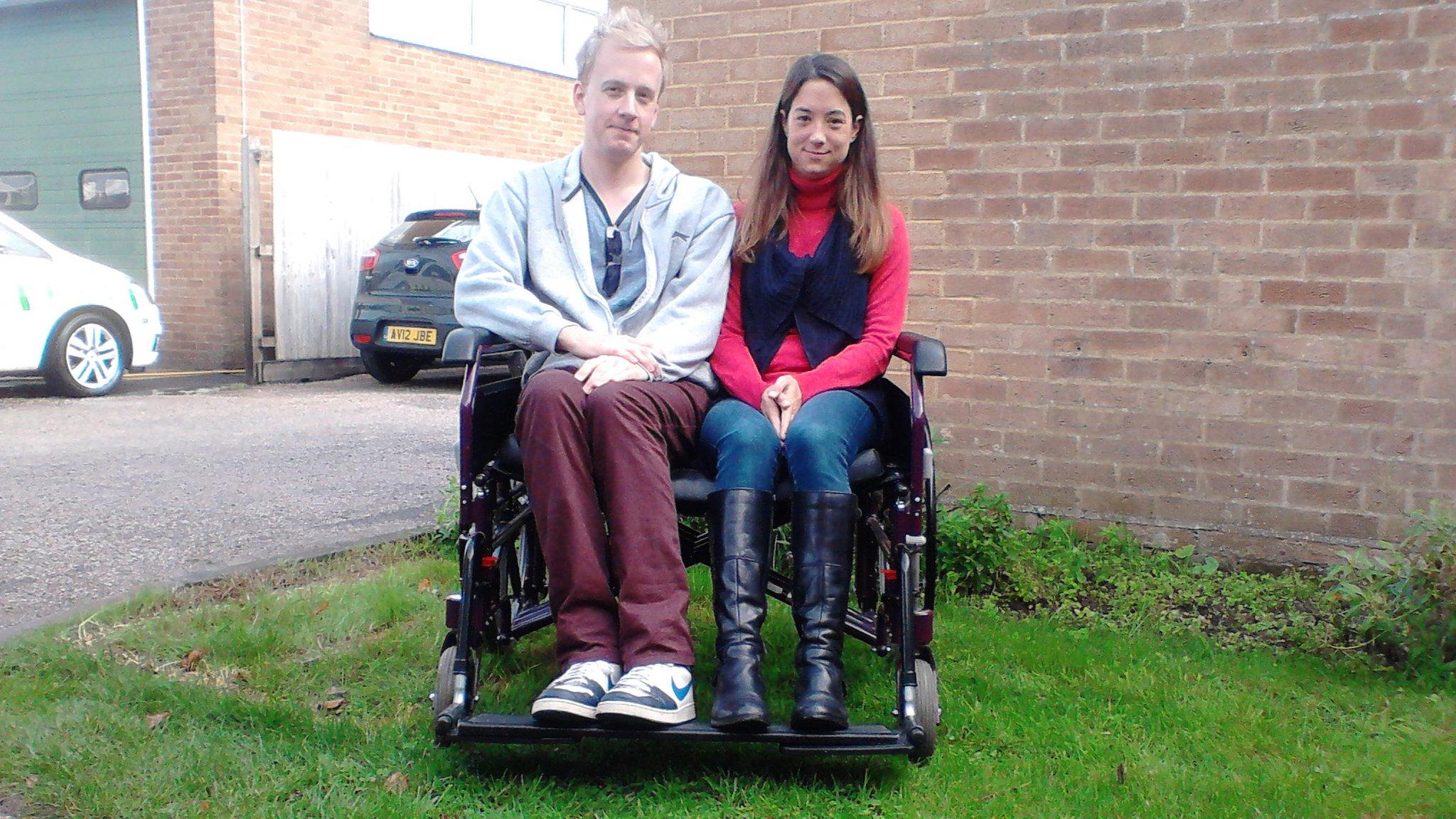
- Published3 February 2011
- Published22 February 2012
